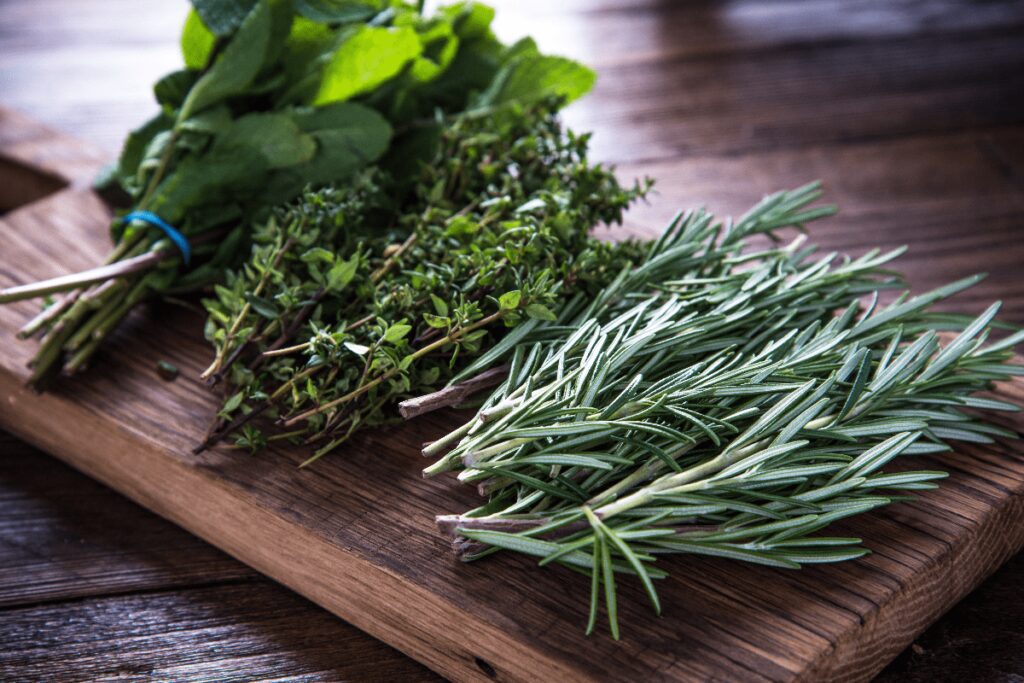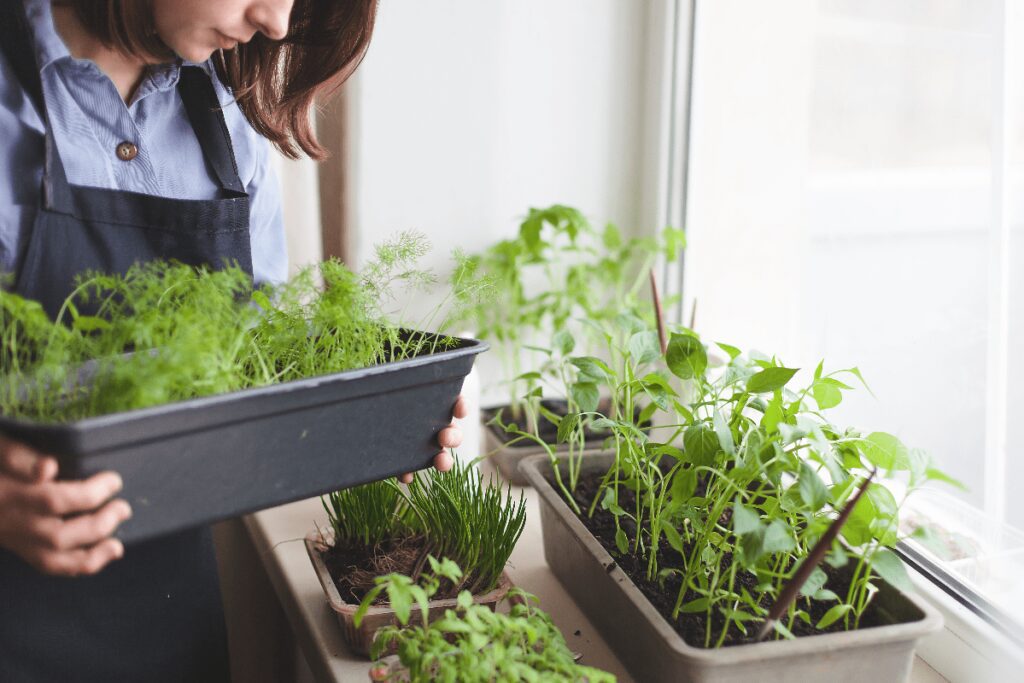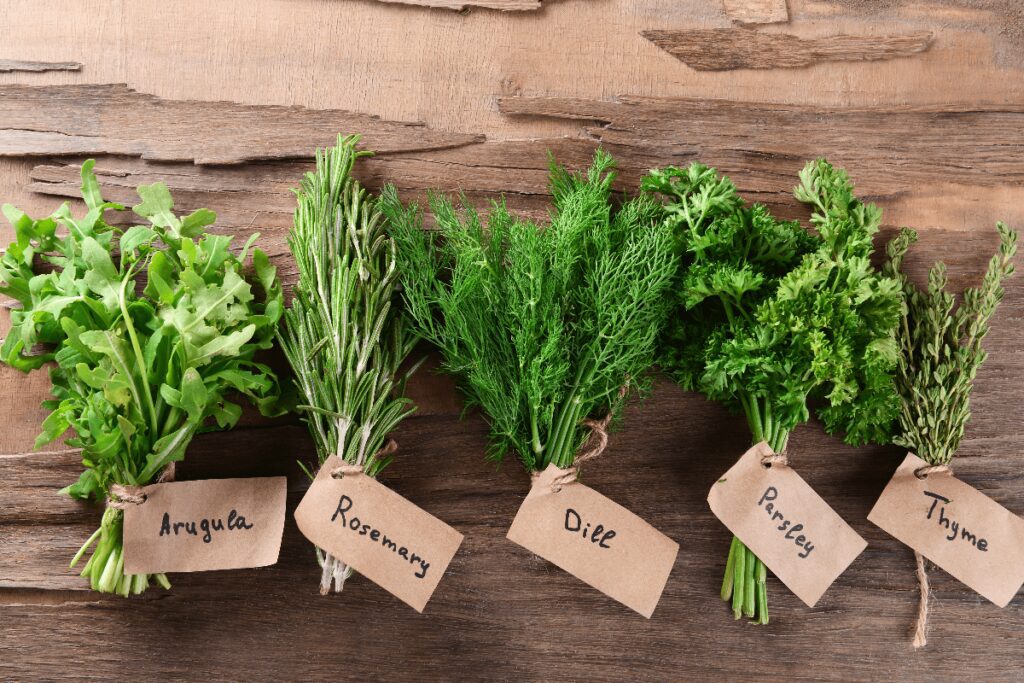Planting a Herb Garden: Easy Tips For Renters

Planting an herb garden provides multiple benefits for both you and your home. If you enjoy cooking at home, they can help save money at the grocery store, and for those not so savvy in the kitchen, they can function as the live design element to go with your home’s decor. Popular in communal "pea patches" as well, herb gardens offer useful and fragrant additions to any home or apartment.
What are herbs?
Herbs are the leaves or “flowers” of plants with soft stems. They are also known to have savory and fragrant properties. They are often used for cooking, medicines and making perfumes and fragrances. Herbs are not to be confused with spices even though they are often used interchangeably. While herbs can be dried and both are aromatic, spices are the other parts of the plant that have been dried like the seeds or roots. Popular spices include cinnamon, cumin and clove.

Here’s how you can begin planting an herb garden of your own.
1. Pick a size
Begin your herb garden at a manageable size. As a first timer, you don’t want to overdo it and become overwhelmed. As you become more familiar with the different types of herbs and gardening, you’ll be able to expand without any problems. Fortunately, herb gardens can fit any size home making them feasible for most living spaces. You can plant them in a large garden or a small container on your windowsill.
2. Choose a location
The experts at She Wears Many Hats encourage you to consider a spot where your soil will have adequate drainage as herb plants need plenty of water. Choose an area where the herbs will always be in your sight. Keeping them visible will not only bring you the joy of watching them grow, but help you remember to keep them watered and cared for as well.

3. Have the right soil
Soil doesn’t need to be too rich, so don’t give it too much fertilizer. You’ll want to ensure the soil has nutrients, so if the soil doesn’t have the right texture and feels more like clay and sand, try adding food compost. Avoid compost manure as it is rich in nitrogen, and while the herbs may grow more quickly, they will lack tremendously in flavor.
4. Make sure there is plenty of sunlight
While choosing a location for your garden, access if the area has plenty of sunlight. Sunlight is a very important component to growing herbs. Proper sunlight helps create the essential oils in herb plants that help them form a deeper flavor and aroma.

What herbs should I plant?
Check the care guide for any plant before you begin. Some herbs like mint are known to spread quickly outside of pots and others like lavender, basil and rosemary are considered difficult to keep alive until they are mature and established. The "starting lineup" for an herb garden include the following suggestions:
- Oregano
- Chives
- Mint
- Sage
- Dill
- Thyme
- Bay leaf
- Lemongrass
- Cilantro
Of course, you can always try additional herb varieties. Remember, that true success might take a couple of tries so be patient with yourself.

Herb gardens in small spaces
Many renters only have a limited space to garden or their landlord might prohibit them from altering the landscape, which is why herb gardens are a great solution. With many herbs well-suited to containers, you can plant a portable or compact garden no matter what size area is outside your home.
Pacifica Landscapes suggests that small space gardeners consider the flow of the garden and not cram too many things into one area. Think about the usability as well — you need to be able to access and water all the plants. Embrace your vertical space to maximize gardening in a smaller area by using trellises or vertical planters.
The Spruce also provides guidance on herb gardening in containers, noting that an emphasis should be put on finding a container that drains well. Just because it looks cute, a metal tin with no holes in the bottom isn't a good fit for example. Self-watering containers are a type of pot that has a reservoir for water and allows you to water your plants less frequently. While self-watering pots don't actually eliminate the need to water, they can be a great solution to prevent many beginner plants from drying out.
Self-watering containers aren't a solution for all herbs, however. Some herbs are pickier and prefer a dryer soil — or at least to dry out between waterings. Avoid self-watering or poorly drained containers when planting oregano, thyme, rosemary and basil.
Don’t forget about access to sunlight. If you’re finding it difficult for your plant to receive natural sunlight, especially if your herb garden is inside, consider buying a grow light. Grow lights also allow you to have a herb garden at any time of the year.

Benefits of herb gardens
There are many benefits to herb gardening. One of the more obvious benefits of growing herbs is that you will have fresh herbs available for all your culinary needs. Buying herbs at the grocery store will cost you at least $2 for only a few sprigs compared to planting your own that will result in a large bounty of herbs for only a fraction of the cost.
Another advantage of herb gardens is the resulting health benefits. Just the act of gardening will help add movement to your day, contributing towards daily steps and exercise. Being active outside can naturally increase your Vitamin D which helps promote bone health, muscle health and mental health according to Healthline.
Even more, working with dirt can help support a healthy immune system as discussed by the New York Times. Garden dirt can contain beneficial microbes that have been found by studies to support everything from healthy gut microbes to a reduction in allergies. Playing in dirt is not only fun, but good for your health.
Planting an herb garden is a fantastic way to expand and enjoy your rental space. Whether you have a large yard or a small balcony, an herb garden can provide you with the benefits of fresh produce and improved health. Getting started is simple and accessible to most beginners, but as always — check with your lease and landlord first.
Ready, set, grow!
Planting a herb garden may take some practice and a little bit of patience, but it’s also very gratifying. Herb gardens can be grown by anyone in any space making it an accessible activity for individuals and families. Begin planting your herb garden today so you can take your culinary skills to the next level and also add a bit of style to your space.
